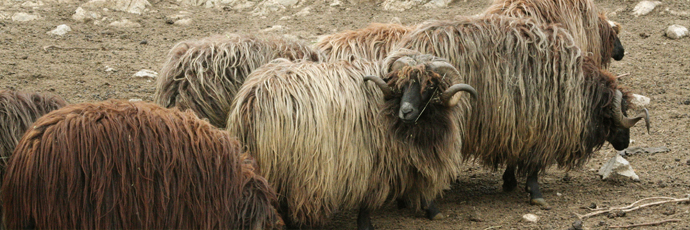Europa Nostra and Slow Food release an EU policy brief on Food & Cultural Heritage
Europa Nostra – the European Voice of Civil Society committed to Cultural Heritage – and Slow Food – the international movement to prevent the disappearance of local food cultures and traditions – published a joint EU Policy Brief on Food & Cultural Heritage in the frame of the “Food is Culture” project funded by the EU Creative Europe programme. An Executive Summary is also available. The EU Policy Brief will be presented and discussed during the online debate “Food and Cultural Heritage: an EU Policy perspective” on 17 November.
Through this paper, the project partners demonstrate the relevance of food heritage, as it constitutes a strong social, economic, and environmental asset for Europe’s recovery, for the fight against climate change and the loss of biodiversity, for sustainable local development, and for social cohesion and inclusion. The brief also includes concrete recommendations to EU policymakers to better protect food heritage, namely by seeking greater coherence between cultural, food and agricultural policies.

Karakachan Sheep, Bulgaria. (c) Slow Food Foundation for Biodiversity
The partners’ first recommendation to EU decision-makers is that they fully recognise the value of food heritage and its beneficial impacts on Europe’s culture, economy, society, and environment, as it is closely linked and interrelated to other sectors (agriculture, health, education, sustainable tourism etc.). Secondly, Slow Food and Europa Nostra recommend to the EU to set up a new platform for genuine cross-sectoral cooperation and exchanges between actors involved at various policy levels, including civil society, international organisations and businesses. This approach should include promoting cultural diversity and intercultural dialogue to reach out to locals, farmers, and migrants, especially youth and in rural areas across Europe.
The links between food and culture are too often overlooked in policy-making although the production and consumption of food are strongly influenced by our cultural environment. This Policy Brief comes at a critical moment in Europe, with ongoing debates at EU level on the Common Agricultural Policy (CAP) and the Farm to Fork Strategy as part of the EU Green Deal, which can play a key role in promoting and safeguarding food heritage and bringing culture back to the centre of our food systems. In parallel, MEPs are calling for effective measures to ‘green’ funding programmes such as Creative Europe and Erasmus+, emphasising the enormous potential of the cultural and creative sectors in encouraging citizens to act sustainably.
Why does food heritage matter?
Food is an essential part of our shared culture and heritage. Not only is it a vital human necessity, but it is also an ancestral fine art praised around the world. Describing cultural heritage without local food products and culinary traditions would neither be fair nor exhaustive, as they are prominent open windows to local customs. However, this strong bond between food and culture which defines food heritage has been fragilized over the last decades, due to the standardisation of food by global supply chains. It urgently needs to be better protected, especially as it has a key role to play in the shift towards sustainable food production and consumption needed to address today’s key societal challenges, such as climate change and the distortion of social cohesion in Europe.

Añana Salt, Spain. (c) Slow Food Foundation for Biodiversity
Due to the ongoing industrialisation of farming, thousands of species, breeds, and varieties selected by humans have disappeared, demonstrating that food production is becoming less influenced by local cultural heritage. In parallel, climate change has led to the deterioration of heritage sites and the loss of biodiversity in natural sites. Food heritage is part of the answer to these dramatic phenomena. Strengthening the link between citizens and their food heritage would indeed offer immense potential to drive climate action and influence consumption patterns.
Similarly, food heritage can help reinforce a sense of belonging to a larger European family and shared cultural identity, at a time when the European project and values are faced with so many challenges. By bringing us together, regardless of our cultural, religious or ethnic background, and by providing us with a greater understanding of centuries of intercultural exchanges across Europe, food can help create a respectful dialogue between people and contribute to adding value to the sense of place.
What role can the EU role play?
Food heritage can be a unifying force for the future of Europe and its citizens by helping to enhance social cohesion in communities, which in turn has enormous potential to drive climate action and work towards a healthier, greener, and fairer society as well as a climate-resilient economy.
With such potential, food heritage needs to be better safeguarded at EU level, but attempts to protect food heritage in one policy domain are often undermined by policies that continue to support the industrialisation of agriculture, at the expense of small-scale producers who are the key actors in protecting food heritage, and overlooking the links between food and culture.

(c) Slow Food Foundation for Biodiversity
Save The Date!
Interested in this topic? Join us for the online debate “Food and Cultural Heritage: an EU Policy Perspective” on 17 November (11:00-13:00 CET) co-hosted by Europa Nostra and Slow Food and as part of the Terra Madre festival! Representatives from the European Commission (DG AGRI and DG EAC), from the European Parliament (CULT and AGRI Committees), and from civil society will explore and discuss the Policy Brief’s key points and recommendations.
The live stream will be made available to the public. Registered participants will be able to ask their questions to the speakers via the online forum. You can register for the event here!






